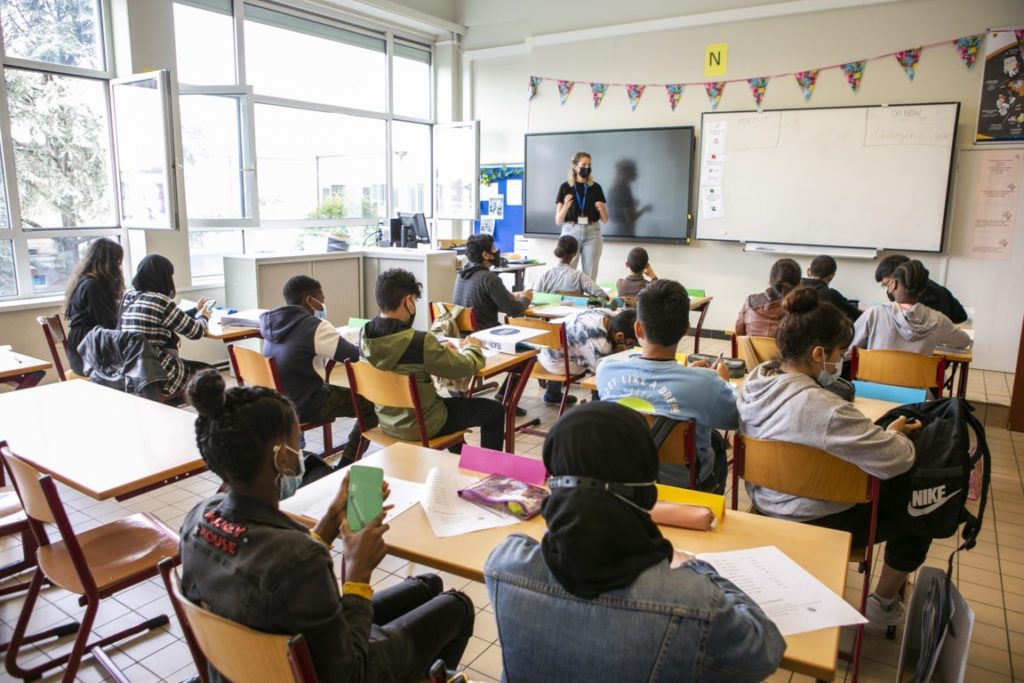Only infected children will have to stay home from schools or nurseries following a decision by the government to abolish rules that were resulting in children who tested negative being stuck at home.
Following calls from the education sector to relax the measures as the system was deemed ineffective, the 11 competent ministers decided on Wednesday evening, following long discussions, that every child who is not ill and shows no symptoms can still go to school or the nursery.
"From the field of education comes the clear signal that the testing, tracing and quarantine strategy is an obstacle to the right to education and creates a lot of organisational problems in schools," a statement Interministerial Conference on Public Health (IMC) read.
What has changed?
The new rules state that in all primary and secondary schools, along with childcare centres, the 'emergency brake' system will no longer be applied after a certain number of children test positive, meaning entire classes will no longer have to be quarantined if four infections occur.
This measure will enter into effect immediately. A class or nursery can still decide to close under specific circumstances assessed by either the school, the Flemish Centre for Pupil Guidance (CLB) or medical experts.
"The new quarantine measures will make a positive difference to pupils, teachers and parents," Flemish Education Minister Ben Weyts said following the announcement.
Related News
- Belgian families worried about cost of self-test strategy for schools
- The situation in schools has ‘worsened considerably’ in recent weeks
Children who had a high-risk contact at home but have no symptoms can still go to school or to the daycare centre. However, for unvaccinated people in secondary schools (12- to 17-year-olds), a ten-day quarantine remains in place. This is the first time a distinction is made between vaccinated and non-vaccinated minors.
The IMC stressed the importance of schools allowing the regular use of self-testing.
The CLB will also stop all contact tracing in schools (as was already the case in Wallonia and Brussels). Now, all contacts within the school with pupils are considered low-risk contacts, including among education staff.
Finally, from 3 February, multi-day school trips will once again be allowed, as was previously announced, but self-testing is particularly recommended for such activities.
The IMC highlighted that all the above measures "are of a temporary nature and will be reviewed as soon as the epidemiological situation allows it."
Vaccination of younger pupils
In their announcement, ministers also stressed the need to monitor the high virus circulation among children aged 5 to 11, where the vaccination rate is lower.
Meanwhile, health ministers have asked Belgium's Superior Health Council to issue advice about a booster dose for teenagers aged between 12 and 17, in light of the delayed decision from the European Medicines Agency (EMA) regarding booster vaccines for teenagers. In the meantime, Belgium is proposing to offer 12 to 17-year-olds the vaccine on a voluntary basis with informed consent.

